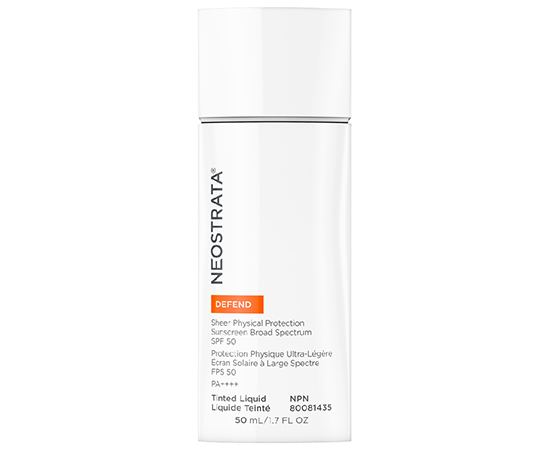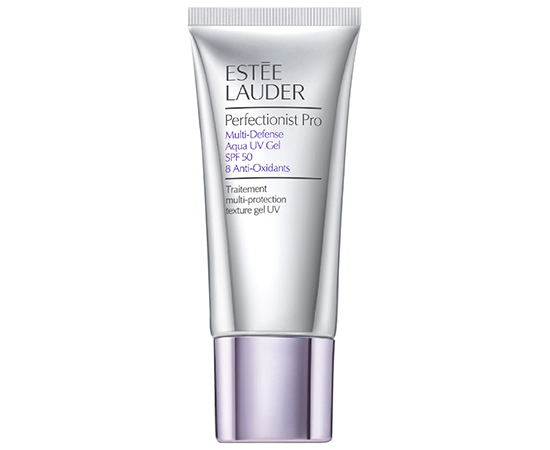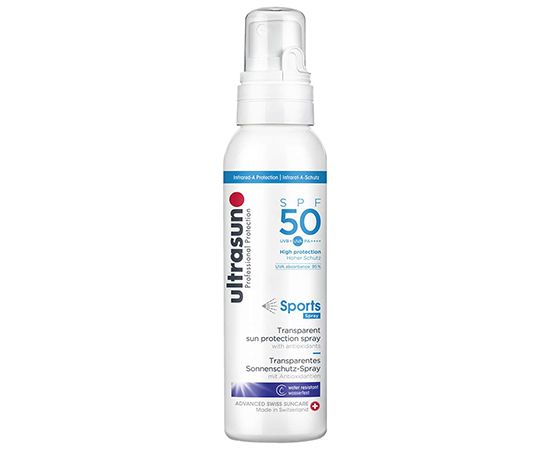These White-Cast-Free Sunscreens Blend Beautifully On All Skin Tones

We often speak of finding a signature scent or red lipstick as pinnacles of adulthood success (well, we do at HB) — but have you ever experienced the pure bliss and triumph that comes with finally discovering your sunscreen soulmate? Ugh, an unmatched, top-tier affair!
 via Giphy
via Giphy
In the past two years or so, there’s been a major improvement in the education of SPF — and social media has definitely played a huge part in this — particularly on conversations around the importance of photo-protection for rich skin tones. However, the notorious myth that darker complexions don’t require daily or frequent application still persists — a misconception that has become dangerously normalized to this day. In order to decipher and hopefully pull the plug on this beauty myth, we reached out to Dija Ayodele, aesthetician and founder of the Black Skin Directory, to chat all things sunscreen for us melanated huns.
 via Giphy
via Giphy
There are quite a few misunderstandings surrounding sun protection for richer skin. Where do you think the SPF melanin myth came from, and to what extent can our skin’s natural defense shield us from UV damage?
“The myth that richer skin tones don’t require SPF protection stems from the fact that as they have higher levels of melanin, their skin is already protected. To a certain extent, this is true. Black skin may even have a natural Sun Protection Factor of up to 13 in their skin, but this is not high enough to provide comprehensive protection against long-term sun damage, potential skin cancer, and other issues that are associated with exposure to the sun.
“The two UV rays that are important to consider when discussing sun damage are UVA and UVB. Their effects on the skin are easily remembered by UVA for Ageing and UVB for Burning. Most people will focus on the burning effects of the sun and the usually short-term discomfort this may cause. However, burning can also cause long-term damage to the skin, and UVA rays can also cause damage day-to-day, even out of strong sunlight. UVA rays also penetrate through windows, and therefore it is important to wear a broad-spectrum SPF, which protects against UVA and UVB rays to shield skin from short-term burning as well as the longer-term damage that the sun can cause.”
What are some examples of sun-induced skin ailments that can emerge in the long run if SPF is neglected?
“The most common concern in richer skin tones, which is brought about by not using SPF in the long term, is hyperpigmentation and skin discoloration. Although hyperpigmentation is always brought on by another concern, such as injury to the skin or acne, this hyperpigmentation can then worsen through sun exposure and not wearing SPF.
“Another concern that is important to consider is the risk of skin cancer through sun exposure. While Black people are less likely to have sun-induced skin cancer, the risk albeit still exists. It is important to be aware of moles on your body and to notice if they change in size, shape, or color as well as protecting your skin with SPF and by sitting in the shade.”
What level of SPF should we be wearing daily, and how often should we apply sunscreen?
“I suggest a minimum of SPF 30 as part of your morning skincare regimen, and re-apply if you are sitting in the sun every two hours or if you go swimming or sweat, etc. Many brands now make dedicated SPF products that can be applied over makeup in spray form to assist with reapplication.”
A question we often come across online is, is it really necessary to wear sunscreen indoors?
“Absolutely! If you can see daylight then UVA rays are present. UVA rays can also penetrate through windows, so it’s really important to wear SPF indoors.”
Let’s chat about sunscreen formulations. What causes the white cast that we often encounter with SPFs?
“Typically, physical sunscreens with ingredients such as zinc oxide or titanium dioxide can cause an unsightly white cast on Black skin. However, technology has advanced in leaps and bounds, and many brands now have physical sunscreens that work perfectly fine on darker complexions using much smaller particles of ZO and TD [zinc oxide and titanium oxide]. Chemical sunscreens are completely safe on deeper tones and leave no tell-tale signs on the skin, and many clients of color tend to prefer this.”
Could you share with us four sunscreens that have your stamp of approval and leave a perfectly sheer finish?
“It depends on what I’m doing. I tend to go between Neostrata Sheer Physical SPF 50, $36, a great mattifying primer for makeup, Estée Lauder Multi-Defence Aqua UV Gel SPF 50, $48, for a juicy and lush skin finish, or UltraSun Face Mist SPF 50, $20, for when you’re out and about and need a top-up. I also really like Glossier Invisible Shield SPF30, $25. It’s a great everyday option that sits well under makeup. And for my body, I tend not to use sunscreen on my body as I’m usually all covered up.”
Neostrata Sheer Physical Protection SPF 50, $36

Source: Walmart.
A mineral sunscreen that doesn’t leave you looking like Casper the Ghost. Laced with some PHA, this double-duty SPF protects and strengthens the skin barrier. Despite its high SPF, it still provides sheer coverage that won’t taint your no-makeup makeup foundation look.
Estée Lauder Perfectionist Pro Multi-Defense Aqua UV Gel SPF 50, $48

Source: Nordstrom.
This juicy UV gel shields while putting a little bounce back into your skin texture. Drenched in antioxidants like Tiger Lily Extract, Green Tea, vitamin c, and E, this sunscreen plumps, hydrates, brightens, and soothes all the while leaving an unseeable veil on skin — no seriously, an invisibility-cloak-like coat that makes the perfect base for your face beat.
Ultrasun Sports Spray SPF 50, $31

Source: Amazon.
Great for those who live active lifestyles, whether you’re a sporty spice or just booked, busy, and forever on the go. It’s completely waterproof, non-sticky, and grease-free, so your layer of protection literally won’t budge even after sweat and tears. Store it in your handbag or gym bag for a quickie daytime spritz.
Glossier Invisible Shield Daily Sunscreen, $25

Source: Glossier.
The SPF for glow-getters — it’s a clear H2O-rich, gel-like formula that’s the perfect hot girl summer accessory thanks to its refreshing texture and dewy finish. It contains ‘active microcapsules’ of UVA/UVB filters, delivering balanced bursts of protection across your skin for an even shield.
To add to Dija’s star picks, we’re also loving these formulations for melanated beauties:
Black Girl Sunscreen Moisturizing Sunscreen Lotion SPF 30, $16

Source: Ulta.
An everyday sunscreen specifically formulated for medium and rich skin tones, leaving no white residue — like zero, none! It’s super-moisturizing, which we love, and this is due to its blend of avocado, jojoba, cacao, and sunflower oil that put in the work to level up your natural melanin glow.
Fenty Beauty Hydra Vizor Invisible Moisturizer Broad Spectrum SPF 30 Sunscreen, $38

Source: Sephora.
This moisturizer and SPF hybrid is as light as a feather and a great base layer for glowy skin. Wild watermelon, baobab, hyaluronic acid, and aloe will leave skin with a boost of hydration and antioxidants, while niacinamide helps treat existing uneven tone.
Supergoop Unseen SPF 40 PA+++, $36

Source: Sephora.
Weightless and ridiculously smooth, this SPF makes the perfect beauty primer for summer days. It’s invisible, non-greasy, and really grips onto makeup, so no pilling in sight with this one. A 5-star bathroom cabinet necessity for all skin tones.
Neutrogena Hydro Boost Water Gel Lotion Sunscreen SPF 50, $16

Source: Ulta
This powerful broad-spectrum SPF packs UVA and UVB protection with a water-light feel and an invisible finish. The formula quenches thirsty skin with hyaluronic acid for all-day hydration.
Now that we’ve got you protected, check out these SPF-infused products to add to your beauty arsenal.
Disclaimer: Every product we review has been independently selected and tested without bias by our editorial team. We never take payment to review products, although some brands allow affiliate links, so we may earn a commission if you purchase a product by clicking on one of our links.




















Leave a comment